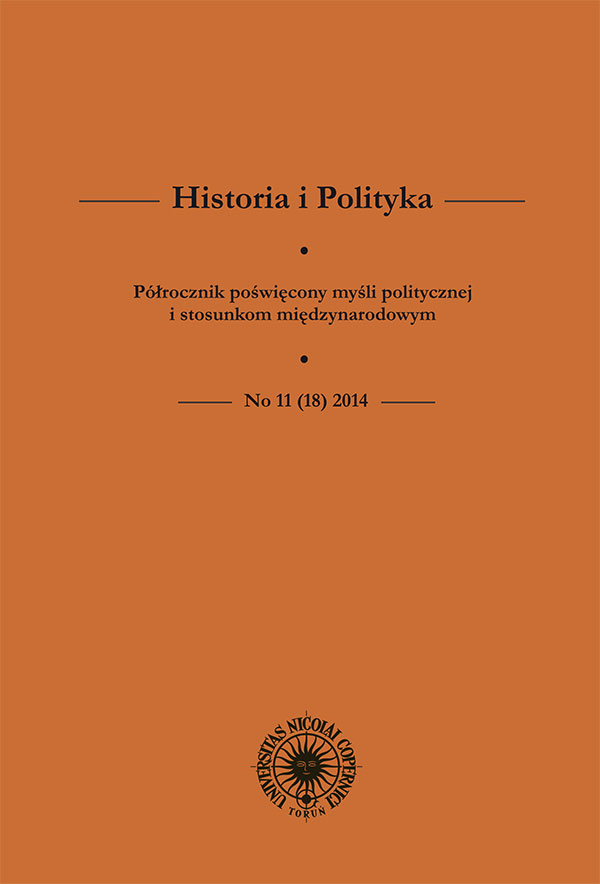Klasyczne podejścia do interpretacji praktyk poznawczych podmiotu w polityce: od czasów antycznych do średniowiecza
DOI:
https://doi.org/10.12775/HiP.2014.002Słowa kluczowe
knowledge, political entity, the state, freedom, bigotry, proces poznawczy, podmiot polityczny, państwo, wolność, fanatyzmAbstrakt
The importance of research on theoretical understanding of the problem of cognitive practices in political science and traditional explanations of cognitive practices as a basic mechanism for explaining policy are presented in the article. The ways cognition was understood by thinkers
in antiquity and the Middle Ages are explained. The article also presents the understanding of political institutions and processes and the place of a person as the primary subject of knowledge.
Bibliografia
Aristotel, Polityka / Aristotel ;[per. z davn'ohrets. ta peredm. O. Kyslyuka], Kyiv, 2000, s. 239.
Berdyaev N. A., O fanatyzme, ortodoksyy y ystyne, http://www.vehi.net/berdyaev/fanatizm.html
Zhyl'son Э., Fylosof y teolohyya, http://filosof.historic.ru/books/item/f00/s00/z0000169/
Mykhaylov F. T., Zahadka chelovecheskoho Ya., http://lib.sibnet.ru/book/2776
Novyy Zavit, Kyiv: Ukrayins'ke Bibliyne Tovarystvo 2003, s. 318.
Platon, Derzhava / Platon, [per. D. Koval'], Kyiv: Osnovy 2000., s. 355.
Toma Akvins'kyy, Komentari do Aristotelevoyi «Polityky» / Toma Akvins'kyy ; [per. z latyny O. Kyslyuka], Kyiv: Osnovy 2003, s. 795.
Pobrania
Opublikowane
Jak cytować
Numer
Dział
Licencja
Uniwersytet Mikołaja Kopernika w Toruniu respektuje prawo do prywatności i ochrony danych osobowych autorów.
Dane autorów nie są wykorzystywane w celach handlowych i marketingowych. Redaktorzy i recenzenci są zobowiązani do zachowania w poufności wszelkich informacji związanych ze złożonymi do redakcji tekstami.
Autor, zgłaszając swój tekst wyraża zgodę na wszystkie warunki i zapisy umowy licencyjnej (określającej prawa autorskie) z Uniwersytetem Mikołaja Kopernika w Toruniu.
Statystyki
Liczba wyświetleń i pobrań: 565
Liczba cytowań: 0



